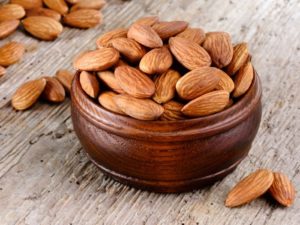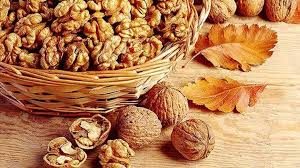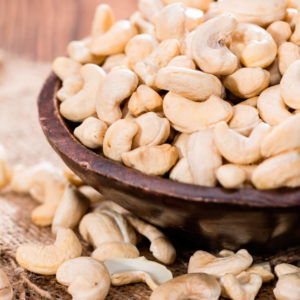We can’t emphasize enough about the importance of consuming nuts and seeds on a regular basis. Most of the nuts and seeds are rich in essential fatty acids, amino acids, trace minerals, and antioxidants that are vital for good health. In this article, we bring before you top 10 good nuts and seeds that benefit your health in more than one ways.
Top 10 Nuts and Seeds
-
Almonds
Almonds are one of the most commonly available and popular nuts in India. Consuming almonds on a regular basis is said to have health benefits like improved metabolism, weight loss, reduced inflammation in patients suffering from Diabetes (Type 2), reduced cholesterol levels, healthy brain development in children, and improved immunity. Almond oil is extremely good for your skin and hair.
To relish these health benefits, you must consume 3-7 almonds by soaking them overnight in water and peeling the skin off. Some of the contraindications of consuming almonds are that they can increases Pitta in your blood that in turn causes skin breakouts. However, you can easily avoid such issues if you consume soaked and skin-peeled almonds.
-
Walnuts
Another popular and widely-consumed nuts are the walnuts. Rich in omega-3 fatty acid, walnuts are said to reduce LDL cholesterol while increasing the good “HDL” cholesterol. Similar to almonds, walnuts help in reducing inflammation and maintaining normal blood pressure. The brain-like structure of walnut signifies that they are power food for the brain.
Walnuts can be consumed as such, toasted, baked, powdered, or soaked. However, the quantity must be restricted to only one or two walnuts per day. Consuming excess walnuts might result in issues, like diarrhea, nausea, or ulcer. Therefore, watch the number of walnuts you consume in a day.
- Pistachios
High in fibers, pistachio is one of the healthiest nuts that can be consumed by most people. Pistachio improves the good cholesterol level in our bodies and is also reduces cardiovascular complications associated with diabetes.
Pistachios are the elixir for eyes. Carotenoids in pistachios help to prevent cataract. Zeaxanthin and other antioxidants in pistachios can counter macular degeneration and damage caused to eyes due to excessive sun exposure.
Pistachios can be consumed as such by removing the shells or in powdered forms as a seasoning in salads. People who want to gain weight can consume pistachio mixed with milk as it helps in increasing weight as well as stamina.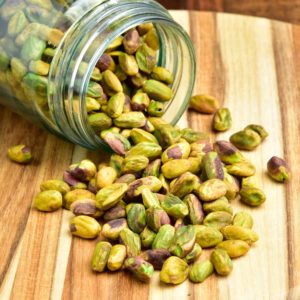
-
Peanuts
Peanuts are affordable, popular, and easily available nuts in India. Technically speaking, peanuts are legumes not nuts but because of their many nuts like benefits, they are considered the honorary member of nut family. Consume peanuts for their many benefits like anti-aging, weight maintenance, reduced cholesterol, and improved memory power.
You can consume peanuts in boiled and roasted form. While eating raw peanuts make sure they are not contaminated with molds. Sometimes on raw peanuts, a mold grows which may produce the carcinogenic substance called aflatoxin. Therefore, it is advisable to consume peanuts in a boiled, cooked, roasted, or butter form. Overnight soaking is another way as it helps in making the nutrients more bio-available.
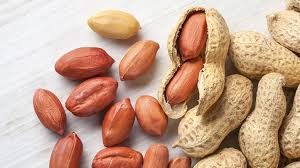
-
Cashews
Cashews and children have always been an amazing love story. Remember those times when we used to eat kheer and Pongal only because it had cashews? Cashews are good for maintaining blood pressure as well as reducing body weight. They are good for your the skin and hair as well.
You can eat cashews in a mildly roasted or steamed form but it is better to have them raw and unsalted.
-
Flax Seeds
Flax seeds are the current trend among many weight watchers and nutritionists. They are a great source of fiber and omega-3 fats. Flax seeds when consumed regularly reduces blood pressure as well as lowers the chances of breast cancer in women. What’s more, they are known for lowering the probability of prostate cancer in men.
Flax seeds can be eaten along with cold cereals or hot oatmeal every day for breakfast. Slightly sprinkle them on your bowl of breakfast. The oil in flaxseeds spoils at high temperature so do not roast them at high flame. Also, note that if taken in excess, flax seeds cause gastrointestinal problems like bloating, constipation, etc.
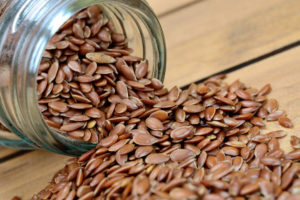
-
Chia Seeds
Like flax seeds, chia seeds are known for their rich fiber and omega-3 fatty acid content. Apart from having the same benefits as flax seeds, chia seeds also help in reducing blood sugar level, especially right after a meal. Chia seeds also reduce appetite; thus, it helps in weight reduction. Also, patients with a history of heart disease can consume chia seeds to reduce risk factors.
Consume chia seeds by directly adding them to your smoothies and juices. Alternatively, you can sprinkle them on your oatmeal or cereals. One of the most effective ways to consume chia seeds, however, is to soak it for a few minutes in water and drink it along with the water. Pregnant women should avoid chia seeds. Their excess consumption can cause GI disorders.
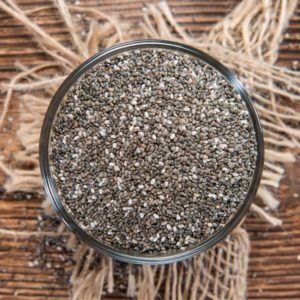
-
Pumpkin Seeds
Rich in omega-6 fats, phosphorus, and monounsaturated fats, pumpkin seeds are one of the most commonly consumed seeds. Consumption of pumpkin seeds regularly reduces the risk of bladder stones and breast cancer. It also reduces blood pressure levels in women who are at the perimenopausal stage.
Pumpkin seeds are not safe for infants and pregnant women. Other than them, anyone who is not allergic to pumpkin seeds can consume them. The best way to eat pumpkin seeds is to roast or toast it slightly and add it to the food of your choice as a seasoning.
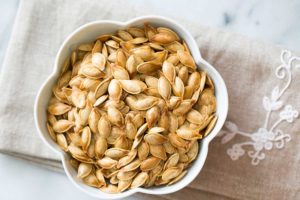
-
Sunflower Seeds
Another common seed that is available widely in India is the sunflower seed. Rich in protein, vitamin E, and monounsaturated fats, sunflower seeds are good for heart and skin. Every middle-aged person must consume sunflower seeds to reduce the risk of heart disease.
One of the major contraindications of the sunflower seeds is that it reduces both good and bad cholesterol, so if you are consuming sunflower seeds regularly, make sure to eat one of the nuts mentioned above to compensate the lost good cholesterol.

-
Sesame Seeds
Sesame seeds are one of the most commonly available seeds in Asia. They mimic the sex hormone estrogen. The consumption of sesame seeds reduces the perimenopausal symptoms and the risk of developing breast cancer. They also help to regularize the irregular menstrual cycle. Black sesame seeds are particularly beneficial for menopausal women suffering from weak bones. A few studies also show that regular consumption of sesame seeds help in improving aerobic capacity by reducing oxidative stress and muscle damage.
It is better to soak sesame seeds overnight before consuming them. Also, chew them well to get the maximum advantage. If you are not very fond of the taste, you can mildly roast it along with jaggery and eat it. Also, keep in mind that excessive consumption of sesame seeds increases body weight. Pregnant women should totally avoid consuming them.
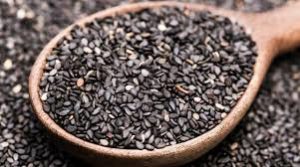
These were the 10 top good nuts and seeds that we recommend to you all. How many of you are consuming at least a few of these regularly? Comment below.
Find out all about Healthy Brain Diet: A Comprehensive Guide
Omega-3 Fatty Acids are Vital for Health: Benefits and Food Sources

